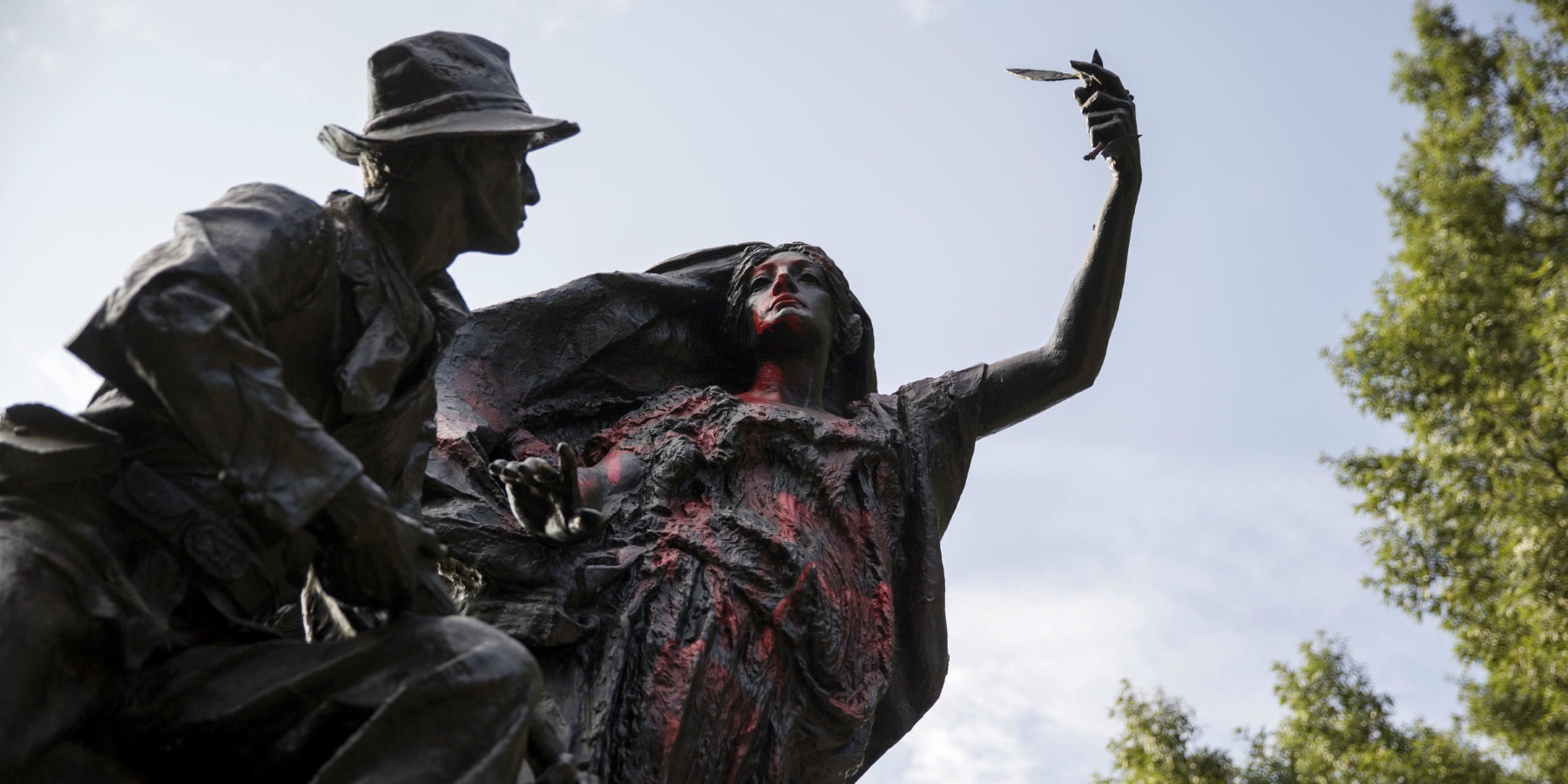Georgia Senate Wants More Protection For Public Monuments

A statue depicting a Confederate soldier in Atlanta’s Piedmont Park was vandalized during a protest in 2017. The Georgia Senate approved a proposal Tuesday that would add protections for all Georgia monuments, including civil rights memorials. However, critics say the bill will help preserve Confederate tributes that were installed years after the Civil War with the intent of intimidating black citizens.
David Goldman / Associated Press file
The Georgia Senate has approved stronger protections for public monuments, in reaction to a growing nationwide push for the removal of statues honoring the Confederacy.
Critics say the bill will help preserve Confederate tributes that were installed years after the Civil War with the intent of intimidating black citizens.
The proposal, approved Tuesday by a 34-17 vote, would add protections for all Georgia monuments, including civil rights memorials.
Under the bill, any person who damages or destroys a monument could be liable for triple the cost to repair or replace it, plus “exemplary damages” — additional costs meant as a punishment. They could also be required to pay attorney’s fees and court costs.
Republican Sen. Jeff Mullis of Chickamauga said the bill “allows our history to be preserved” and addresses the vandalism of monuments. Mullis said people who do such things are “not handling their opposition … appropriately.”
The original bill would have removed the ability to add an explainer or interpretive guide to a monument, such as adding context about the ills of slavery next to a monument to the Confederacy, but was amended so that interpretive guides are still allowed.
Another amendment, offered by Democratic Sen. Elena Parent of Atlanta, would have allowed local communities to move or remove monuments that they own. That amendment failed.
The original law protecting Georgia monuments was a 2001 compromise that removed the Confederate battle flag from the state flag.
Pressure has been mounting for decades to take down monuments honoring the Confederacy. It picked up steam after a speeding car killed a woman and injured dozens in Charlottesville, Virginia, on Aug. 12, 2017. The vehicle plowed into a crowd protesting a gathering of white supremacists whose goal was to protect a statue of Gen. Robert E. Lee.
Confederate monuments at public parks, county courthouses and college campuses across the nation fell almost daily for weeks following the incident.
According to the Southern Poverty Law Center, laws in seven states, including Georgia, protect Confederate monuments.
In 2017, neighboring Alabama passed a law that prohibits relocating, removing, altering or renaming public buildings, streets and memorials that have been standing for more than 40 years.
Birmingham officials had discussed removing a 52-foot tall obelisk erected to honor Confederate veterans in a downtown park in 1905. After the monument protection law was approved, the city instead put wooden panels around it, just days after the deadly violence in Charlottesville.
The attorney general’s office sued Birmingham, and a judge declared the law void. Jefferson County Circuit Judge Michael Graffeo rejected the state’s arguments that lawmakers had the power to protect historical monuments statewide.
The state is appealing the ruling, and the law remains in effect during the appeal.








